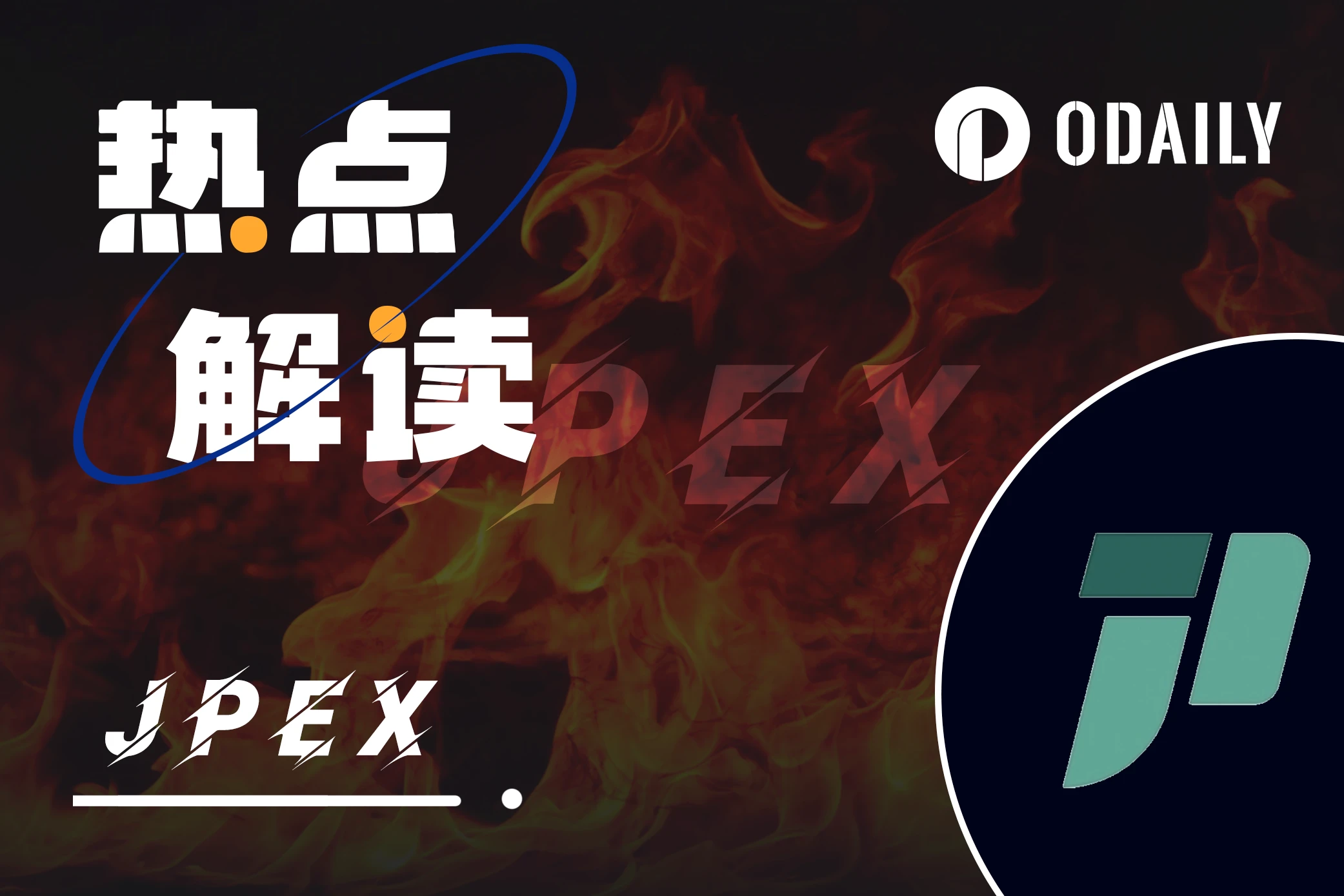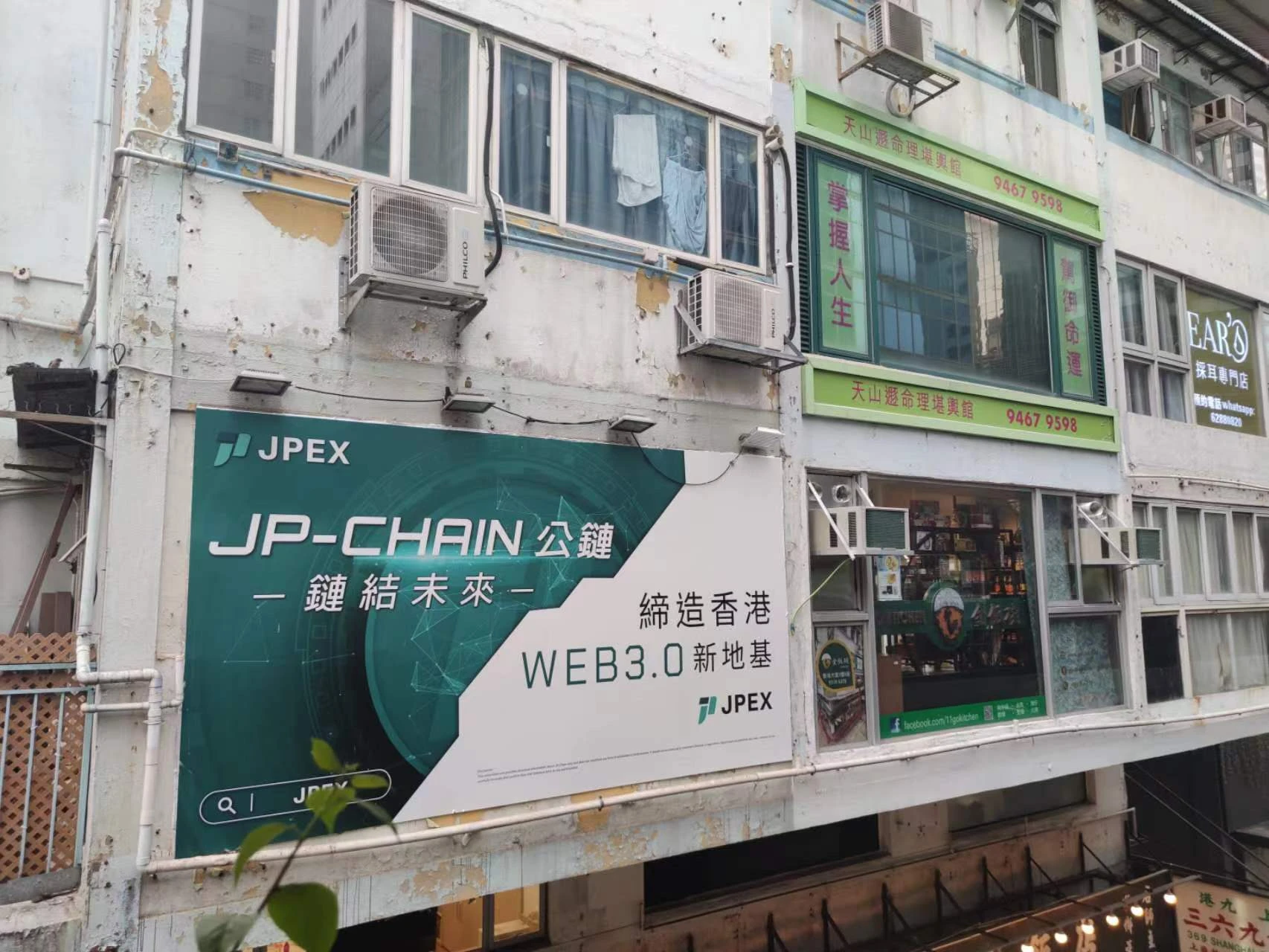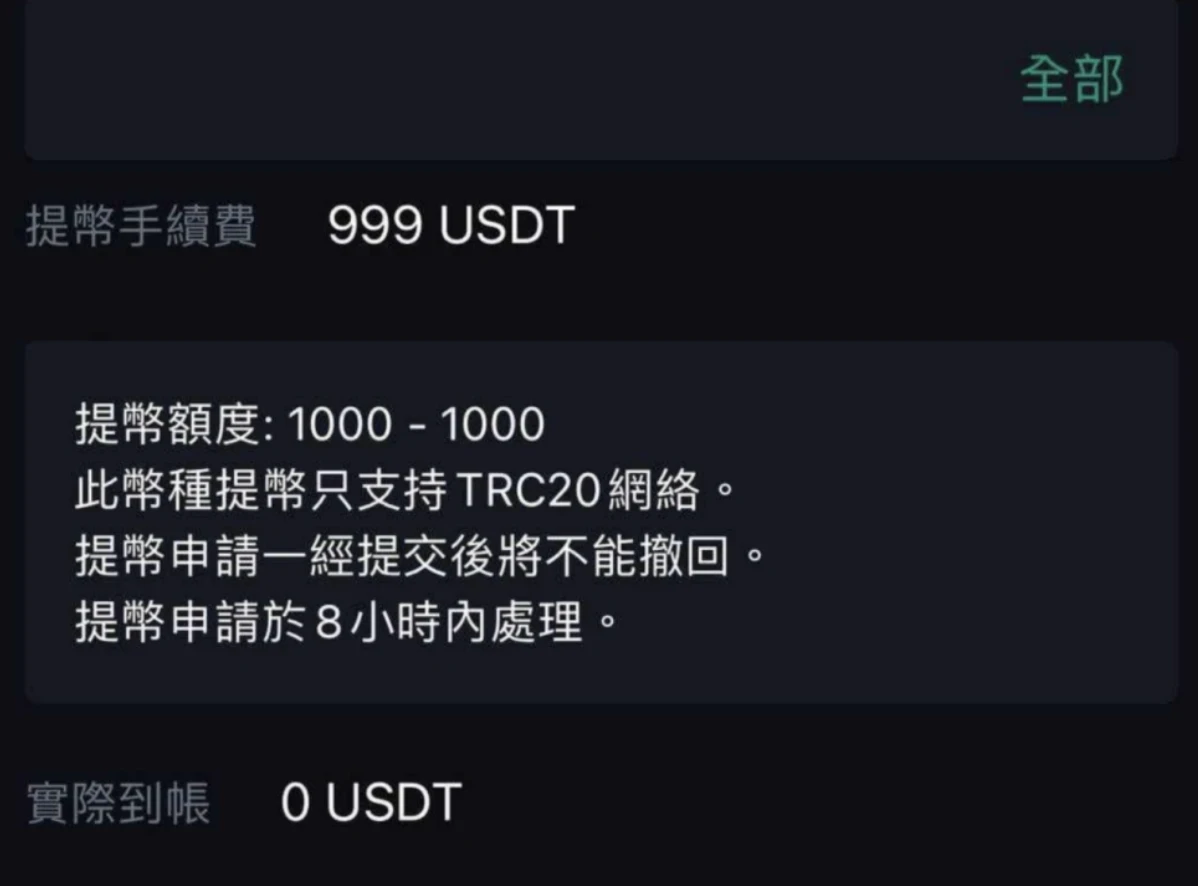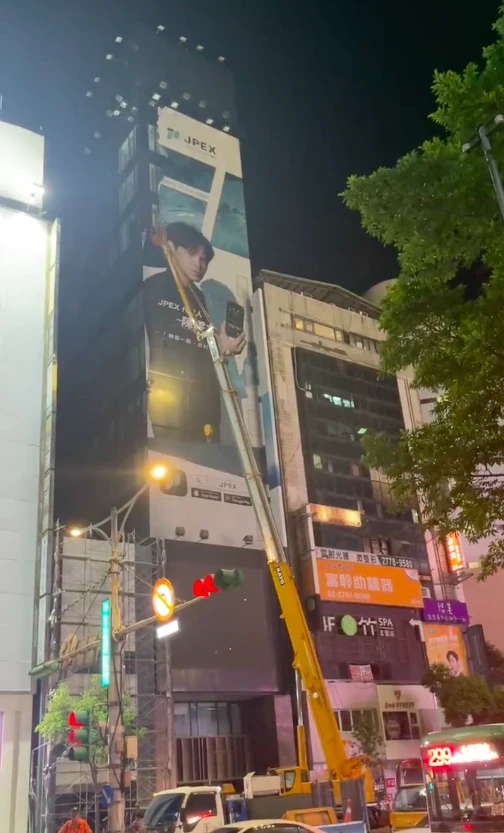Original | Odaily Planet Daily
Author | 0xAyA

The JPEX exchange, which claims to be "creating a new foundation for Web3 in Hong Kong," is currently in a quagmire. As of the time of writing, more than 2,000 people have reported being victims in cases related to the JPEX exchange, involving a total amount of 1.3 billion Hong Kong dollars. Some Hong Kong media have referred to this case as the "largest financial fraud case in history." Among the 11 criminal suspects who have been arrested, there are not only personnel related to the exchange, but also KOLs who had previously voiced support for it.
On the first day of Token2049, the exchange still had a presence in the exhibition area, actively promoting itself as a "regulated and compliant" exchange. However, shortly after, due to incidents such as "withdraw 1000 USDT, fee 999 USDT," the police initiated an investigation into JPEX, and it was even mentioned by the Chief Executive. What exactly happened behind the scenes?

Timeline
On September 13, the Securities and Futures Commission of Hong Kong issued a warning statement on its official website regarding "unregulated virtual asset trading platforms." The content is as follows:
The Securities and Futures Commission has noted a virtual asset trading platform named "JPEX," which actively promotes its services and products to the Hong Kong public through social media influencers and over-the-counter virtual asset currency exchange shops.
The Commission hereby clarifies that no entity under the JPEX Group is licensed by the Commission, and none of them has applied for a license to operate a virtual asset trading platform in Hong Kong.
The Commission has also observed numerous suspicious practices by JPEX and those who actively promote JPEX to the Hong Kong public and over-the-counter currency exchange shops:
(a) JPEX claims on its website that it is "a licensed and recognized digital asset and virtual currency platform." It claims in its website and local advertorials that it has obtained licenses to operate virtual asset trading platforms from several overseas regulatory authorities, which is not true in fact.
(b) JPEX offers extremely high returns for some of its products.
(c) The Commission has received complaints from retail investors and noted media reports indicating that retail investors have been unable to withdraw virtual assets from their accounts opened with JPEX, or have found their account balances reduced and altered.
(d) Some of the products offered by JPEX appear to involve arrangements related to virtual assets, such as "deposits," "savings," or "earnings," which are not allowed under the virtual asset trading platform regulatory regime of the Commission.
(e) JPEX has advertised on its website and in local advertorials that it has entered into a business cooperation with a listed company in Hong Kong and has received investment from that company, when in fact the cooperation has been terminated, and the listed company has not made any investment.
(f) Social media influencers and over-the-counter currency exchange shops have made false or misleading statements on social media, claiming that JPEX has independently or in conjunction with a listed company in Hong Kong applied for a license to operate a virtual asset trading platform in Hong Kong, when in fact no entity under the JPEX Group has submitted any application for a license to operate a virtual asset trading platform to the Commission. The Commission has informed the relevant social media influencers and over-the-counter currency exchange shops of its suspicions and concerns, and has requested them to cease promoting JPEX and its related services and products.
The Commission has informed the relevant social media influencers and over-the-counter currency exchange shops of its suspicions and concerns, and has requested them to cease promoting JPEX and its related services and products.
Just an hour after the Commission issued this announcement, the JPEX exchange suspended its withdrawal service and subsequently countered on its official website, stating its "intention and plan to apply for a license," and pointing out that the Commission's actions "amount to pressure on the cryptocurrency industry, reflecting its reluctance to truly implement the policies for Web 3.0, conflicting with the government's determination to build Hong Kong as a Web 3.0 city."
In the early hours of the 14th, users of the JPEX exchange began to react on social platforms, reporting that their withdrawal limit on the exchange had been restricted to 1000 USDT, with a staggering fee of 999 USDT.

The next day, concerned individuals reported that the JPEX booth, which had been promoting at Token2049 the day before, was now empty. Regarding the withdrawal issues at the exchange, the Commission stated that it would refer the matter to the police for further investigation. Subsequently, JPEX issued a special announcement on its official website, stating that the platform would gradually adjust the withdrawal fees in accordance with the Commission's response and would gradually increase the withdrawal limit. Users with urgent withdrawal needs could apply for priority withdrawal by filling out a form, and the withdrawal fee was "very thoughtfully" reduced to 980 USDT.
Data analysis company Bitrace tweeted that the addresses related to the JPEX exchange had been severely contaminated with funds, with one hot wallet receiving over 190 million risky USDT in the past 20 months. The two addresses that transferred the most to this hot wallet were both high-risk addresses, marked as "money laundering" and "black market."
The situation escalated further, with Blocklike reporting that JPEX had claimed to spend a sky-high rent in Taipei to become the "Asian Blockchain Building," the core base of blockchain in Asia, but it was now empty. The facade still displayed a poster of the well-known KOL Chen Lingjiu. In response, JPEX stated, "After learning about the JPEX incident, we wanted to help understand the situation, but we are currently unable to contact relevant personnel at JPEX. Other details are being handled by the company, and we will fully cooperate if relevant units need to investigate," admitting that the cooperation had ended at the end of July.

Other KOLs and celebrities who had collaborated with the exchange also began to distance themselves.
"JPEX partner" Lin Zuo announced on social media that he would stop promoting any unlicensed exchanges in Hong Kong, and his OTC business would also be suspended. He described himself as also suffering heavy losses, saying "it's not much better." Several influencers who had previously promoted JPEX, including "Coin Prince" Huang Zhejie, who was arrested for throwing money in Sham Shui Po in 2018, removed JPEX-related videos from social platforms and stated on Instagram that they would not publicly promote or mention any exchanges in Hong Kong that had not applied for a license, in compliance with regulations and the requirements of the Commission. As for Julian Cheung, who had previously shot endorsement advertisements for JPEX, his agent responded, "Just noticed that Julian Cheung's image is being used by JPEX, feeling helpless." Previously, JPEX had invited them to shoot the advertisement, claiming to be registered overseas and providing proof, so they arranged the shoot in March last year. However, in May last year, they learned that JPEX was "under the supervision of the Commission" and had notified JPEX in writing that they could not use Julian's image for any advertising until they obtained a license in Hong Kong. They ultimately stated that they "reserve the right to pursue JPEX."
On the 15th, JPEX issued another special announcement, stating that it had closed the gaming hall function in accordance with the instructions of the Hong Kong Securities and Futures Commission. The Hong Kong police's Commercial Crime Bureau stated that it was following up on the incident and urged complaints related to JPEX to be reported through electronic means. Chief Superintendent of Police of the Hong Kong Special Administrative Region, Siu Tse-yin, met with the media after attending an event the next day and responded to the JPEX fraud and the leakage of Cyberport data, stating that the police had received the case referred by the Commission the day before. As it may involve elements of deception, it is currently being followed up by the Commercial Crime Bureau, and as of 3 p.m. on the 15th, 83 people had reported cases involving approximately 34 million Hong Kong dollars.
On September 17, JPEX issued a public announcement, stating that due to the restriction of the platform's liquidity by third-party market makers and in compliance with policy guidance, all transactions on the financial management page would be delisted, and liquidity would be recovered from third-party market makers as soon as possible, gradually adjusting the withdrawal fees to normal levels. At the same time, JPEX stated in the announcement that it would establish a DAO and restructure its architecture to "address the issues," and select a reasonable solution for a user referendum.
On September 18, the Commercial Crime Bureau officially arrested KOL Lin Zuo and another influencer, Chen Yi, on charges of fraud. It is reported that Lin Zuo had opened a coin trading company in Central last month and had publicly stated on social media that he had applied to become a partner of JPEX, revealing an income of up to 740,000 yuan and boldly stating, "It's much easier to make money than doing insurance before."
On September 19, Hong Kong Chief Executive Carrie Lam stated that in response to the JPEX virtual asset trading platform case, she had requested the police and the Securities and Futures Commission to meet with the media this afternoon to explain the related events. She emphasized the importance of regulation, including the necessity of investing in regulated and licensed trading platforms, as well as the importance of individuals understanding virtual assets and related risks. She also stressed that the current licensing system is designed to protect investors, and the Commission will monitor market changes to ensure that investors' interests are fully protected, while the authorities will also vigorously promote investor education.
In the afternoon, the police held a briefing on the case, stating that as of 10 a.m. on the 18th, the police had received 1,641 reports involving approximately 1.2 billion Hong Kong dollars. Currently, four men and four women suspected of conspiracy to defraud have been arrested, and in this operation, 8 million yuan in cash was seized, and over 12 million yuan in bank deposits and 44 million yuan in properties have been frozen, with these assets being suspected proceeds of crime.
Senior Superintendent of the Commercial Crime Bureau, Kong Qingxun, stated that JPEX used advertising, social media, over-the-counter currency exchange shops, and KOLs to promote its platform services, claiming low-risk high returns. Many of the deceived citizens in the case lacked experience in cryptocurrency investment, and described the returns claimed by JPEX as "too good to be true." He also mentioned that some victims were persuaded to buy JPC and use it as a "pledge" in a manner similar to fixed-term deposits, and after the pledge period, they would receive extremely high returns. JPEX also required customers to provide the private keys of their cryptocurrency for safekeeping, essentially allowing JPEX to control the users' assets.
On the morning of September 19, the eight individuals detained in connection with the case were granted bail pending further investigation, but they are required to report to the police in mid-October. Prior to this, the official website of JPEX announced that "JP-EX Crypto Asset Platform Pty Ltd" was registered with the Australian Securities and Investments Commission (ASIC), but on September 19, the company applied for voluntary deregistration with ASIC, with Jieyi Chen, a director of the company, as the applicant.
On September 20, the Securities and Futures Commission issued another statement regarding JPEX, stating that JPEX claimed to be a virtual asset trading platform and was unregulated. Since March 2022, the Commission had been closely monitoring the platform and had begun inquiries into the platform's alleged false and misleading statements and unlicensed activities. Due to JPEX's uncooperative attitude and failure to provide a substantive response to the Commission's requests, the Commission listed JPEX as an unlicensed company and a suspicious website in July 2022. The Commission confirmed that JPEX had never contacted the Commission regarding a possible license application, and no entity under the JPEX Group had been licensed by the Commission or had applied for a license to operate a virtual asset trading platform in Hong Kong. Therefore, there had been no communication between the Commission and JPEX regarding licensing matters.
On the same day, some users reported that users of Hong Kong telecommunications service providers 1010 and CSL were unable to use the JPEX mobile app. It is understood that all local telecommunications service providers in Hong Kong had received instructions from the police to block the app, meaning that other telecommunications service providers may also have the opportunity to block the app in the near future.
On September 21, the Hong Kong police reported updated information on the JPEX case, stating that three more men suspected of conspiracy to defraud had been re-arrested, and were currently detained for investigation. As of 5 p.m. on September 20, the police had received a total of 2,086 reports from victims, involving approximately 1.3 billion Hong Kong dollars. The investigation is ongoing, and more arrests are not ruled out. Earlier, actor Julian Cheung, who had participated in shooting advertisements, had also reported to the Hong Kong Police Headquarters to assist in the investigation. Later that evening, Hong Kong Democratic Alliance for the Betterment and Progress of Hong Kong Chairperson Starry Lee, functional constituency legislator Chan Chung-ni, and accountant legislator Holden Chow jointly wrote to the Hong Kong Financial Affairs Committee, stating that the JPEX incident was serious and requesting that the JPEX incident be added to the agenda for the meeting on October 9, and the Securities and Futures Commission would also be invited to provide further explanations.
On the same day, Carrie Lam, in her speech at the celebration of the 74th anniversary of the founding of the People's Republic of China and the 26th anniversary of the return of the Hong Kong Special Administrative Region, expressed great concern about the incident and emphasized the importance of investor education. Legislative Council member Michael Tien also stated in his speech that the JPEX incident proved that it was correct to establish a sound virtual asset licensing system in Hong Kong. He urged the public to use licensed institutions and reputable companies and not to easily believe in so-called influencers or investment experts without a license. He reminded the public that no investment product has extremely high returns without any risk.
On September 22, JPEX issued a notice stating that due to being blocked by telecommunications companies, users registered with Hong Kong phone numbers were unable to receive SMS verification codes. JPEX provided emergency withdrawal methods for customers, using the last six digits of the phone number registered by the user instead of the SMS verification code. JPEX also reminded users registered with Hong Kong phone numbers to immediately bind their accounts to an email address to ensure the security of their assets.
Conclusion
As the Hong Kong government encourages support for Web3, but with incomplete policies, JPEX's extensive promotion and record-breaking case undoubtedly dealt a blow to the ambitious Hong Kong Web3 industry and further eroded the trust of the general public, who already knew little about the industry. Although the Securities and Futures Commission had stated at a press conference that it had no authority to take any action before the new regulatory mechanism took effect on June 1, some legislators still criticized the Commission for "inaction" and "shirking responsibility."
Where will the Hong Kong Web3 industry go after this incident? Stephen Ho, Honorary Chairman of the Hong Kong Information Technology Federation, stated that regulation does not mean there will be no problems at all, but he also added, "I think there is value in the existence of virtual currency, because you can always see that it is running all over the world."
免责声明:本文章仅代表作者个人观点,不代表本平台的立场和观点。本文章仅供信息分享,不构成对任何人的任何投资建议。用户与作者之间的任何争议,与本平台无关。如网页中刊载的文章或图片涉及侵权,请提供相关的权利证明和身份证明发送邮件到support@aicoin.com,本平台相关工作人员将会进行核查。



